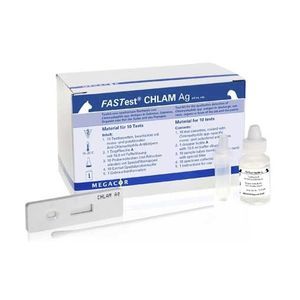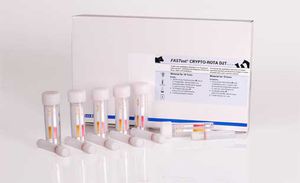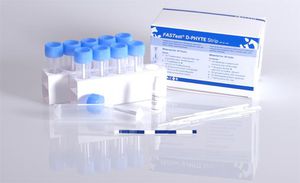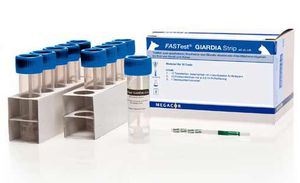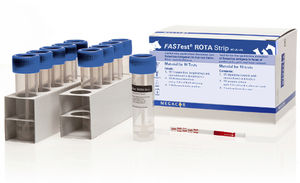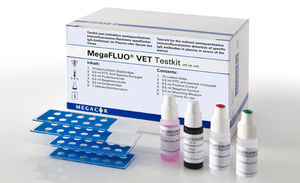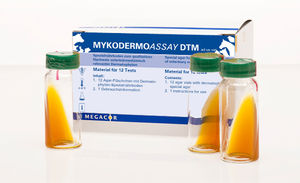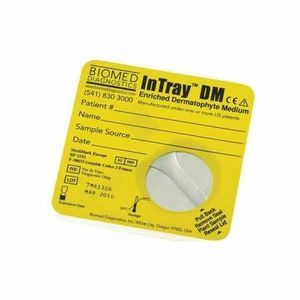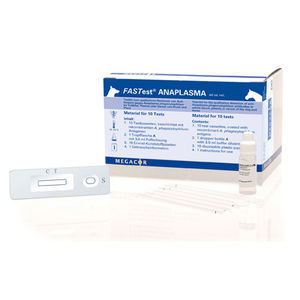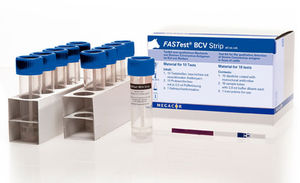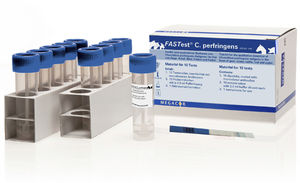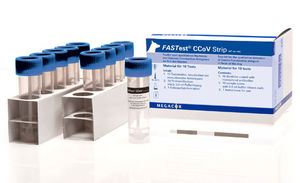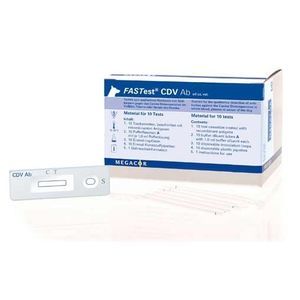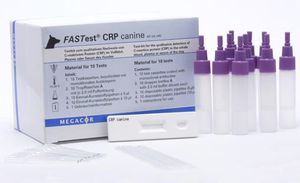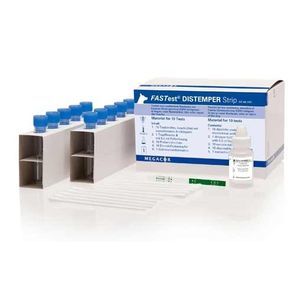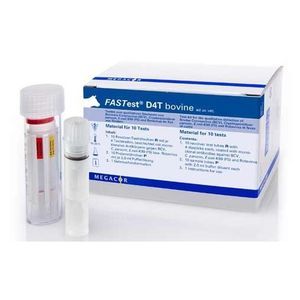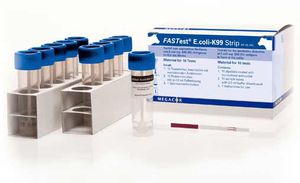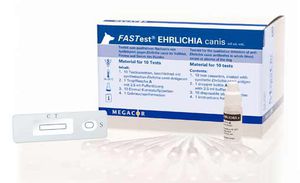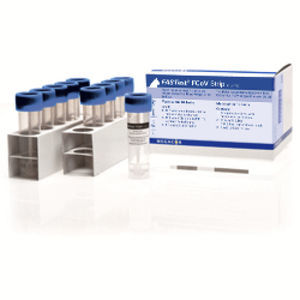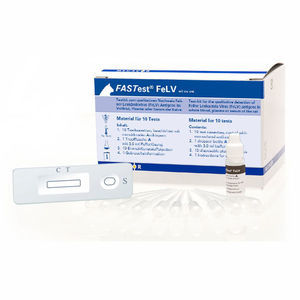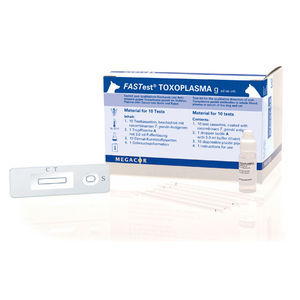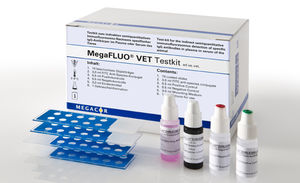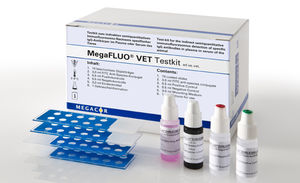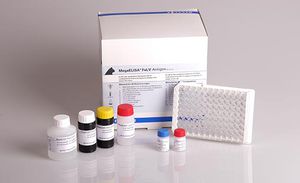
- Laboratory
- Laboratory medicine
- Rapid infectious disease test
- MEGACOR Diagnostik
Rapid Neospora caninum test FASTest® NEOSPORAfor infectious diseasesveterinaryserum
Add to favorites
Compare this product
Characteristics
- Applications
- for infectious diseases
- Application field
- veterinary
- Micro-organism
- Neospora caninum
- Sample type
- serum, plasma, whole blood, feces
- Analysis mode
- immunochromatographic
- Result display time
15 min
- Specificity
100 %
- Sensitivity
96.2 %
Description
FASTest® NEOSPORA caninum is a rapid immunochromatographic test for the qualitative detection of antibodies against Neospora caninum in whole blood, plasma or serum of the dog, cattle and deer.
Neospora caninum plays an important epidemiological role in dogs and cattle. The dog (esp. watch dogs, stray dogs) is a definitive host (intestinal neosporosis) and excretes infectious oocysts with the feces. The intermediate host, especially cattle, but also goats, sheep and horse, gets infected via grazing land and/or water contaminated with oocysts (horizontal direct/exogeneous infection) and/or intrauterine via already infected mothers (vertical indirect/endogeneous infection). For humans, there is no zoonotic risk at all.
N. caninum plays an important role in abortion in cattle world-wide. Characteristics are accumulating abortions in all states of gestation, dead births and weak calves.
The dog can act as an intermediate host (endogeneous-diaplacental transmission onto the fetus) as well and therefore can fall sick with neosporosis (systemic neosporosis). In dogs, the symptoms are especially focused on neurological disorders: paresis / paralysis of the hind-limbs, later also of the fore-limbs, as well as polymyelitis, radiculitis and encephalomyelitis. Also, muscular atrophy, hyperextension, hyperaesthesia and dysphagia can occur. Additionally, hepatitis, pneumonitis, myocarditis and ulcerative dermatitis can appear. In older dogs Neospora infection usually is asymptomatic! Puppies become clinically conspicuous at the age from 3 to 9 weeks up to one year. Early diagnostics and therefore specific therapy are essential for the prognosis.
Catalogs
No catalogs are available for this product.
See all of MEGACOR Diagnostik‘s catalogsRelated Searches
- Assay kit
- Blood assay kit
- Molecular biology reagent kit
- Serum assay kit
- Immunoassay assay kit
- Plasma assay kit
- Infectious disease detection kit
- Blood rapid diagnostic test
- Diagnostic reagent kit
- Laboratory reagent kit
- Rapid lateral flow test
- Immunoassay rapid diagnostic test
- Virus rapid diagnostic test
- Serum rapid diagnostic test
- Plasma rapid diagnostic test
- Histology reagent kit
- Reagent medium reagent kit
- Infectious disease rapid diagnostic test
- Whole blood rapid diagnostic test
- Immunology reagent
*Prices are pre-tax. They exclude delivery charges and customs duties and do not include additional charges for installation or activation options. Prices are indicative only and may vary by country, with changes to the cost of raw materials and exchange rates.



